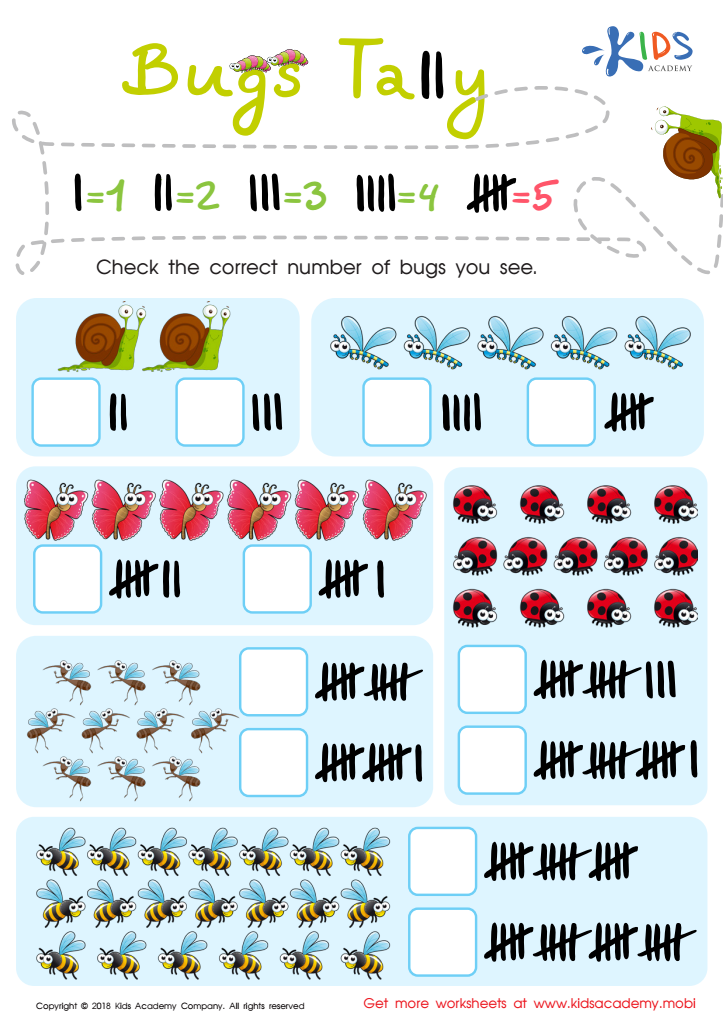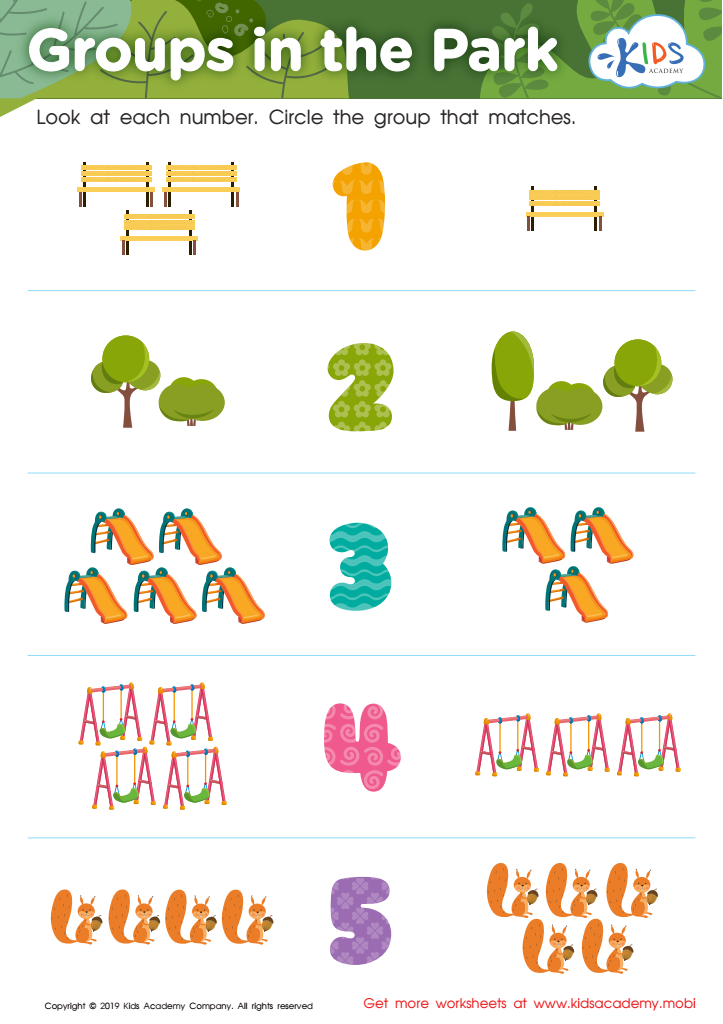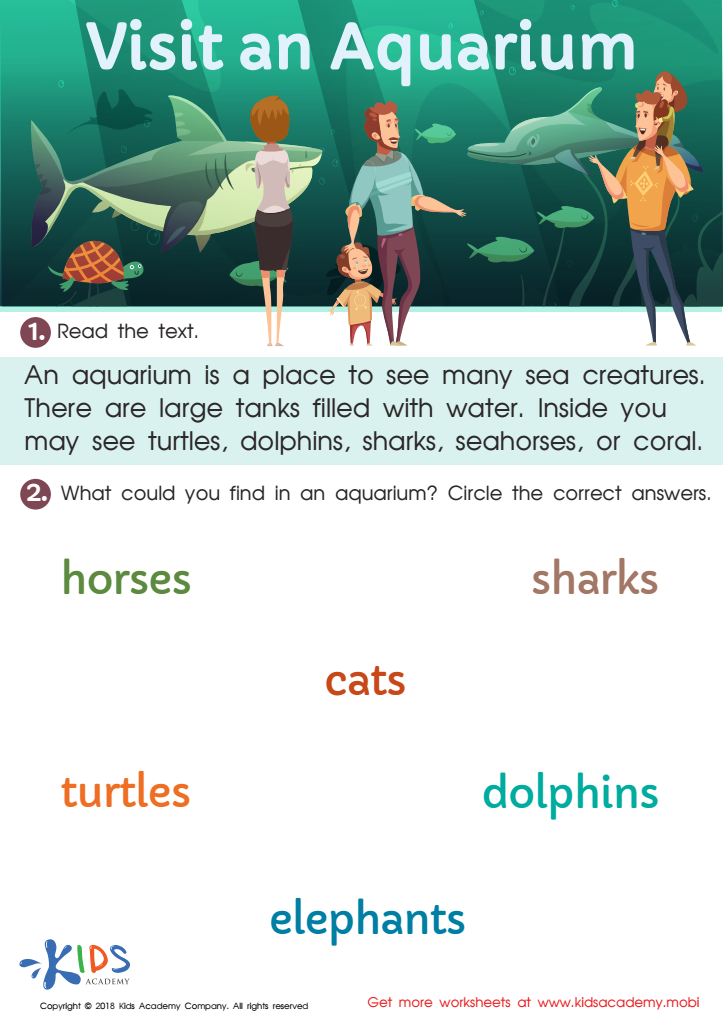Visual interpretation Easy Worksheets for Ages 3-8
3 filtered results
-
From - To
Discover our "Visual Interpretation Easy Worksheets" designed specifically for children ages 3-8! These engaging worksheets provide young learners with the tools to enhance their visual comprehension skills through fun and interactive activities. Your child will explore images, patterns, and visuals, fostering critical thinking and observational abilities. Each worksheet is thoughtfully crafted to spark creativity and make learning enjoyable, all while helping to build essential skills in a playful manner. Perfect for home or classroom use, our resources support early childhood education and make it easy for teachers and parents to inspire a love for learning. Explore and watch your child's skills flourish!


Bugs Tally Worksheet


Groups in the Park Worksheet


Visit an Aquarium Worksheet
Visual interpretation is a vital skill for children ages 3-8 and essential for parents and teachers to prioritize. At this stage, children are like sponges, absorbing information through their senses, and visuals play a huge role in their learning. When kids learn to interpret images—like pictures in storybooks, charts, or even symbols—they develop critical thinking skills. These skills help them understand and make sense of the world around them.
Moreover, strong visual interpretation skills enhance literacy and numeracy. For instance, recognizing patterns in shapes and colors strengthens mathematical understanding, while interpreting pictures in stories aids in reading comprehension. Engaging with visual materials also fosters creativity, boosting children's ability to express themselves and develop unique ideas.
Additionally, activities that promote visual interpretation can enhance memory retention. Parents and teachers can use games, storytelling, and art projects to reinforce these skills in fun, engaging ways. Encouraging children to describe what they see helps them articulate their thoughts and feelings, building confidence in communication. Ultimately, fostering visual interpretation skills not only supports academic success but also lays the groundwork for lifelong learning and adaptability. Parents and teachers have an essential role in nurturing these skills, as they significantly impact children's overall development.
 Assign to My Students
Assign to My Students
















